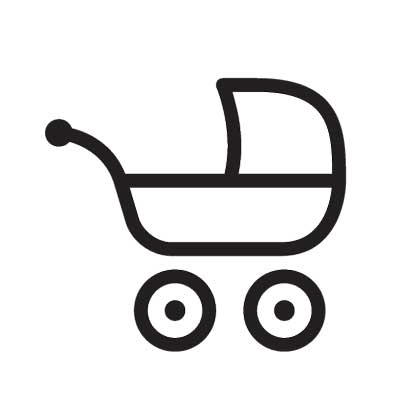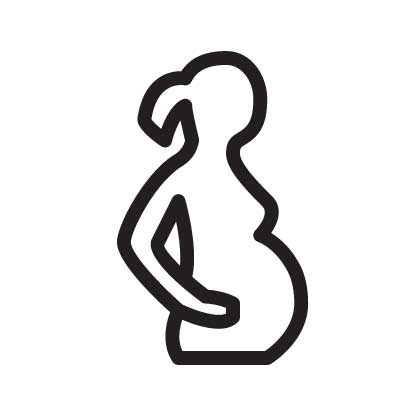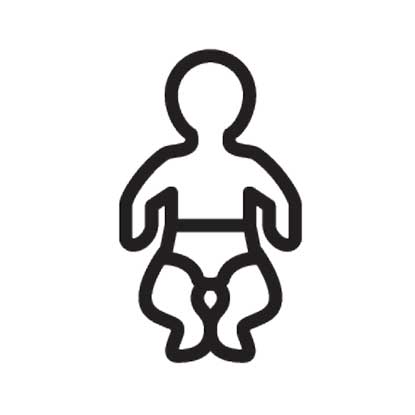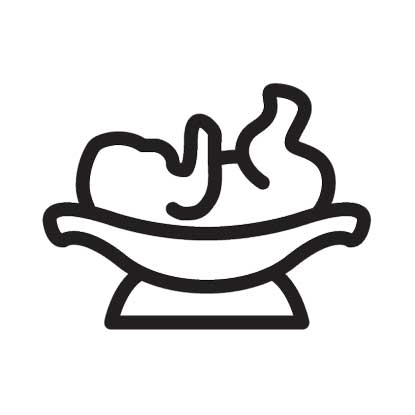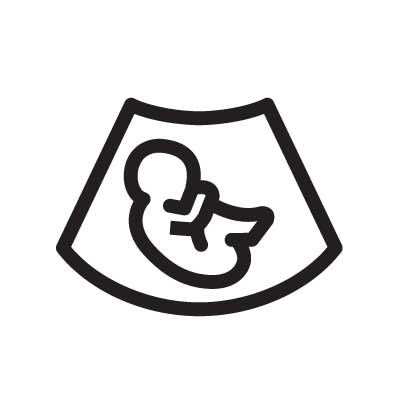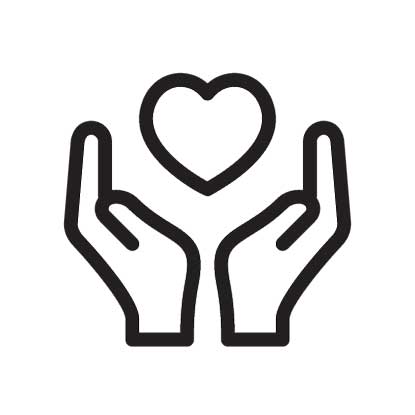Food & Infections/h1>
Food and infections during Pregnancy (A-Z)
During pregnancy it is important to eat healthy and a variety of food. Eating for two is not necessary, but it is unwise to be on a diet during your pregnancy. For advice regarding a healthy eating pattern you can go to www.voedingscentrum.nl.
There are a few things you have to pay extra attention to during your pregnancy.
Important to know
Alcohol
Caffeine
Caffeine is possible harmful to your unborn child. The more caffeine you consume, the higher your chance of getting a miscarriage and the lower the birthweight of your child. For mothers-to-be it is better not to consume too much caffeine. Women who are breastfeeding should avoid drinking too much coffee. Caffeine goes into the mother’s milk and will make the child restless.
The Voedingscentrum advises not to consume more than 300mg of caffeine a day. Caffeine free coffee, herbal tea and caffeine-free coke is a good alternative for habitual coffee-, tea- and coke-drinkers.
Examples of 300mg caffeine:
• 3 cups of coffee, 1 cup of tea
• 2 cups of coffee, 2 cups of tea and a glass of coke
• 2 cups of coffee, 3 cups of tea
Calcium
During the pregnancy it is advisable to take 1 gram (1000 milligram) of calcium a day. You will get the most calcium out of your daily diet. Do this calcium-check to see if you are getting enough calcium per day.
If you are not getting enough calcium, we advise you to take a supplement. This can eather be calcium in a multivitamine for pregnant women or a separate calcium supplement.
Cytomegalovirus (CMV)
Folic acid
Listeriosis
Listeriosis is caused by the listeria bacteria which, among things, can be found in cheese made from raw milk (au lait cru). Becoming infected with this bacteria can also have consequences for your child. Always carefully read the packaging of your food. Products made from pasteurized or sterilized milk can’t hurt. The listeria bacteria can also be found in raw en prepackaged smoked fish and raw meat.
Smoking
Smoking during pregnancy has certain obvious risks. Smoking yourself, or staying in an environment where smoking takes place, can negatively influence your pregnancy. When you smoke the placenta will get less blood. The unborn child receives less oxygen and growth slows down. The intellectual development of the child can also be influenced by smoking. Your child can also be born too early.
After giving birth it is ill advised to smoke in front of the baby. This increases the risk of Sudden Infant Death Syndrome (SIDS). It is advisable for both parents to stop smoking. This is not an easy task. If you want help to quit smoking, you can go to your GP.
Toxoplasmosis
Fish
However, because of pollution fish can contain harmful substances. Especially, heavy metals (such as mercury), dioxins, PCB’s and toxaphene. It is advisable not to have fish more than twice a week. Eating predatory fish and eel from the large rivers is discouraged.
Vitamine A
Vitamins
Foodcenter Holland
For specific information regarding which products you can or cannot use during pregnancy you can visit www.voedingscentrum.nl.
They also have a very good application called ZwangerHap for your phone which tells you immediately what you can and cannot eat and gives you warning messages in case a bacteria is found in certain products.
